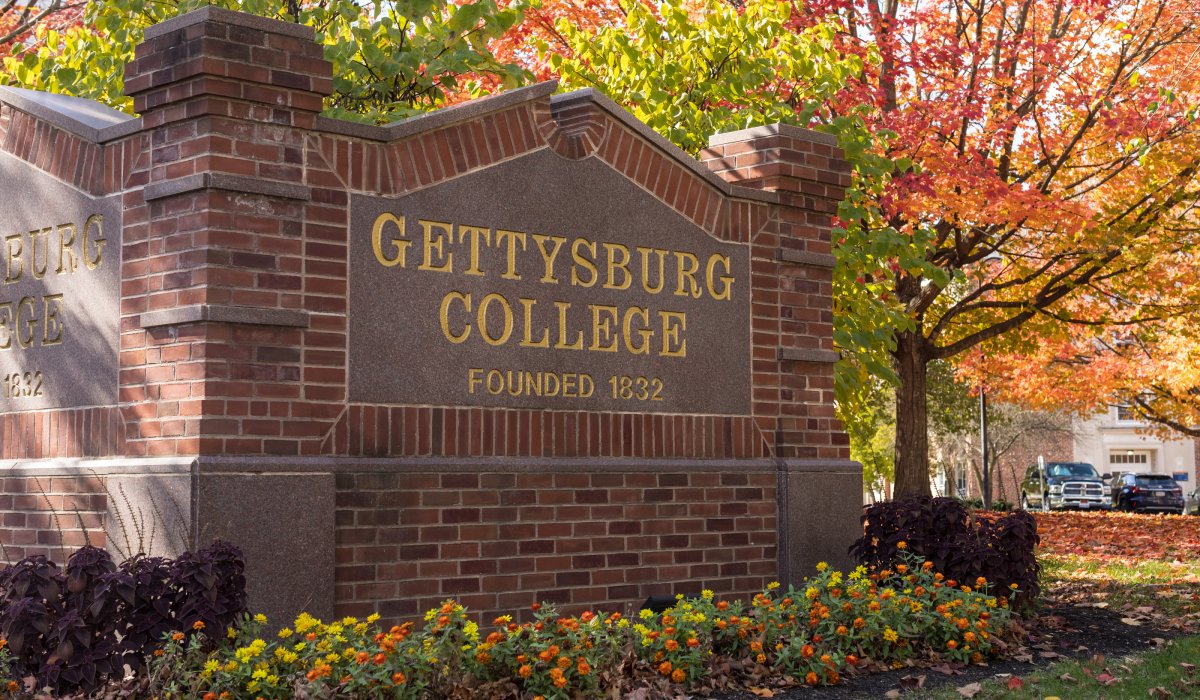
“Who are we? A pressing question for today’s educational institutions” was originally published by PennLive on February 17. The op-ed is authored by Gettysburg College President Bob Iuliano.
Who Are We?
These three simple words ask a profound question with enduring relevance for a country seeking to understand itself and its direction at a time of polarization unlike we’ve seen in decades. They were also the theme of a first-ever film festival celebrating the work of renowned documentary filmmaker Ken Burns, which took place over three days this past week at Gettysburg College.
The festival was powerful and provocative, highlighted by Burns’ engagement with Gettysburg College students and later the general public as he reflected on his work. Sessions over the course of the three days included a focus on the Civil War, protest and activism, the Central Park Five, and clips from Burns’ films organized around the theme of “A Nation Divided.”
As Burns noted during his public sessions, history may not repeat itself but it rhymes—and his films urge us to look with unblinking eyes at the full complexity of American history. Our founding documents set out principles that were truly revolutionary in their articulation of equality, liberty, and participation in the instruments of government.
But, even as the ink dried on these inspirational words, the stain of slavery persisted. History has rhymed ever since, with tension between our founding aspirations and societal realities finding itself repeating—in the Civil War, Vietnam, and our continuing struggle to create an inclusive, just, and equitable society.
The festival had special resonance to me, as the president of Gettysburg College. As Burns pointed out, self-governance is not the norm over the course of human history. We see today the rise of autocracies and other forms of government where power is concentrated in the hands of the few.
Democracy is in fact fragile, and it takes the commitment of its citizens to nourish and support it.
It also takes institutions like Gettysburg College for democracies to remain vital. An educated citizenry is the cornerstone of a healthy democracy. It is yet more true as the world has grown in complexity. As George Papandreou and Jordan Shapiro noted, self-governance requires “citizens who have the access, wisdom, and skills needed to work productively, participate democratically, and live contentedly in networked ways.”
This has long been the purpose of an education grounded in the liberal arts and sciences. We ask our students to grapple with questions such as the one Burns put to my campus. We also equip them with a breadth of skills and knowledge—about themselves and the world—that permits them to engage society ethically, empathetically, aware of history’s lessons and rhymes, and with an understanding of their responsibilities in a participatory democracy.
If higher education is to be effective in producing an educated citizenry, there are necessary preconditions. Students who come to us must have foundational skills, which speaks to the importance of K-12 education. We need the support that permits us to create the transformative education that helps shape engaged and effective citizens. But we also need to be given the space to ask hard and often uncomfortable questions—especially those questions that may challenge the status quo.
Democracy takes people willing to get involved and advocate for their views. It recognizes that no two people are of one mind, and that the contest of ideas is itself foundational to a healthy polity. Higher education must be a place where ideas are debated, where orthodoxy is questioned, where youthful idealism finds voice.
It is why we all should be alarmed by the efforts currently underway by state governments to restrict what may be taught in public colleges and universities. When government itself can declare certain topics off limits, especially those topics that ask foundational questions about the structure of society itself, our democracy is not stronger.
During the festival, Burns offered an example driving this point home. When his documentary on the Vietnam War was released, his company ensured it was made available online in Vietnam and with Vietnamese captions. He later spoke to a Vietnamese citizen who had lived through the war and had seen the documentary.
Before seeing the film, the citizen had understood that the protests gripping the United States during the war were a sign of our country’s weakness. After seeing the film, he understood the opposite was true: the ability of people to question government policy was in fact a compelling statement about the vitality of our country and our democracy.
Let’s take that reflection seriously. Having government censor what it regards as a disagreeable idea is never an answer.
It is no accident that Ken Burns chose Gettysburg and Gettysburg College at which to reflect on his lifetime of work. It is here that the course of the Civil War was determined. It is here that Abraham Lincoln asked whether our nation—“conceived in liberty, and dedicated to the proposition that all men are created equal”—could long endure. And it is here where he spoke to a “new birth of freedom” and called on all of us to protect “government of the people, by the people, for the people.”
The land on which my campus sits can attest to the rhyming of history Burns described. We have lived the brutal consequences of political polarization. It is why at Gettysburg College we commit ourselves every day to Lincoln’s call to advance the unfinished work of democracy.
President Bob Iuliano
Posted: 02/22/23